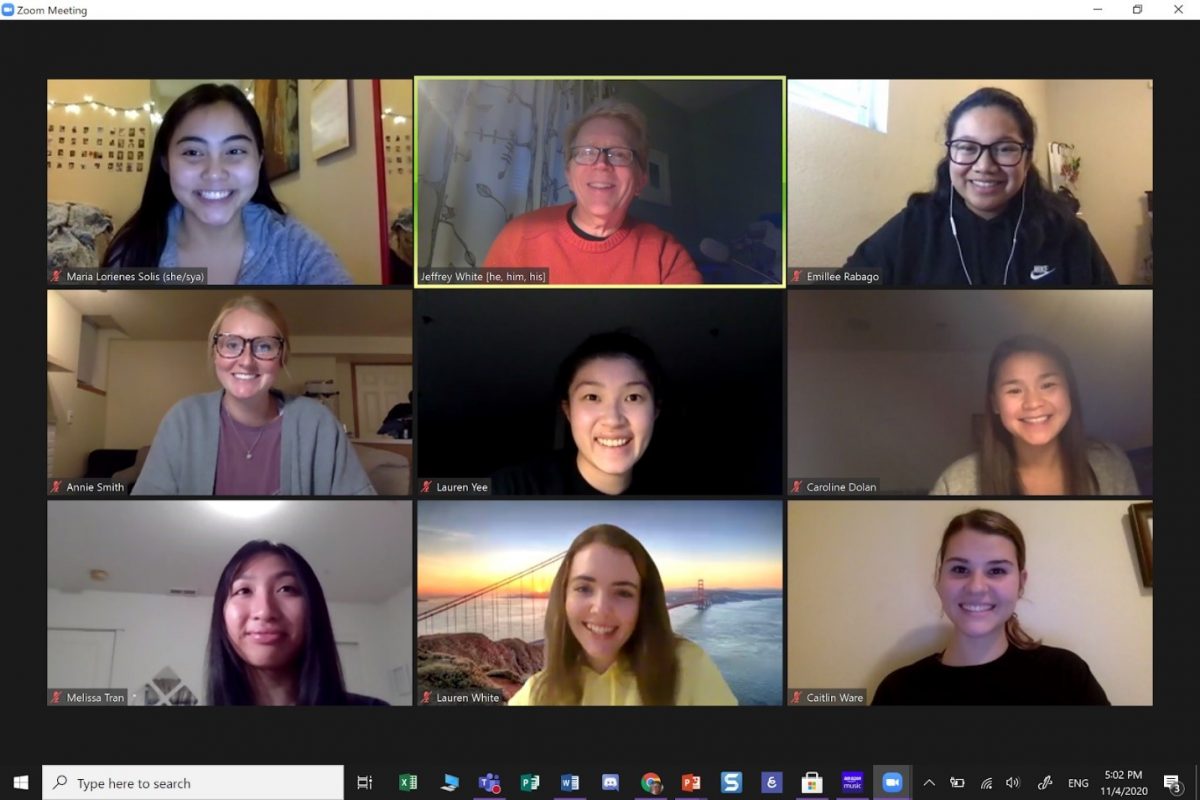The Learning Commons is UP’s hub for peer-assisted learning support. We house the Writing Center, the Math Resource Center, and content-based tutoring programs in the sciences, languages, business and economics, and nursing. We also offer support with presentations and group projects. All writing assistants and tutors participate in hours of training.

In the past year, we’ve been busy developing new programs to support all UP students.
The Study
Often, students need help with how to study and how to organize time for durable learning. While our tutors in the Learning Commons are trained to support students with study strategies, we also recognized the need for peer-assisted learning about how to learn in specific disciplines. Reading and learning in the disciplines varies. For example, learning in science courses is far different than learning in a philosophy course.
Last spring, we piloted The Study, a peer tutoring program which helps students develop and refine discipline-specific study strategies. This fall, we’ve added it to our regular line up of tutoring programs. Currently, we have two tutors staffing The Study, and this number will grow in the spring.
PAL groups
PAL groups are the Learning Commons’ newest addition to our programming. PAL stands for peer-assisted learning. PAL groups support historically difficult classes that tend to have higher rates of D/F grades and withdrawals (DFW). Research shows that peer-facilitated learning groups such as PAL and supplemental instruction (SI) reduce DFW rates significantly. Many refer to PAL and SI as high-impact practices in learning assistance.
Students voluntarily attend PAL group sessions that are organized by a trained peer facilitator who has taken the class in an earlier semester. Collaborative learning is a focus of PAL programs, and facilitators address both what to learn and how to learn it. Our PAL program can support faculty who agree to let the facilitators sit in their classes once or twice per week. The participating faculty also must share student performance data so that we can assess the PAL program.

Prior to offering PAL sessions, facilitators participate in six hours of training covering characteristics of PAL and SI, facilitation techniques, collaborative learning techniques, learning strategies, and session planning. Facilitators also participate in ongoing trainings on topics like active learning and community building. I also meet with each PAL facilitator weekly to discuss recent and upcoming sessions.
This semester’s PAL program is a pilot that will continue into the spring semester. As we progress through the academic year, we will determine whether we want to make PAL a permanent program of the Learning Commons.
Watch an interview that I did with nursing student Maria Lorienes Solis ’21 on her experiences as a peer facilitator in UP’s new online PAL program.
Other initiatives to support students
- With the shift to remote learning, the Learning Commons has expanded its website to include pages on learning to learn online and how to create online study groups. In the coming months, we will continue to refine these pages so that we can improve our support of all UP students no matter where they are.
- For more information on the Learning Commons and how it supports UP students, please visit our website.

Jeffrey White is the Learning Commons Administrator with the Shepard Academic Resource Center, as well as an Instructor in International Languages & Cultures at the University of Portland.
